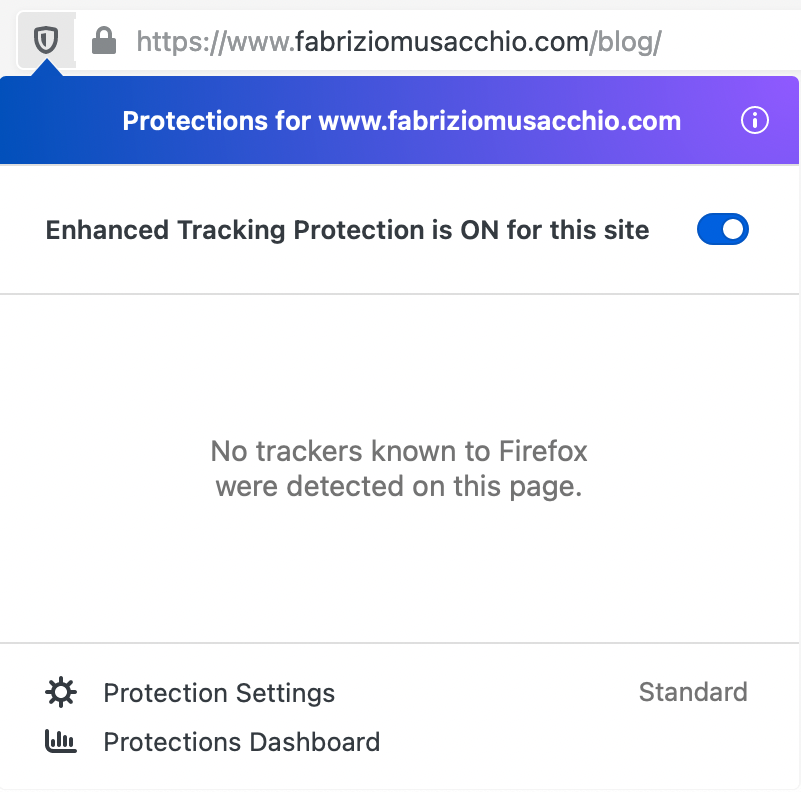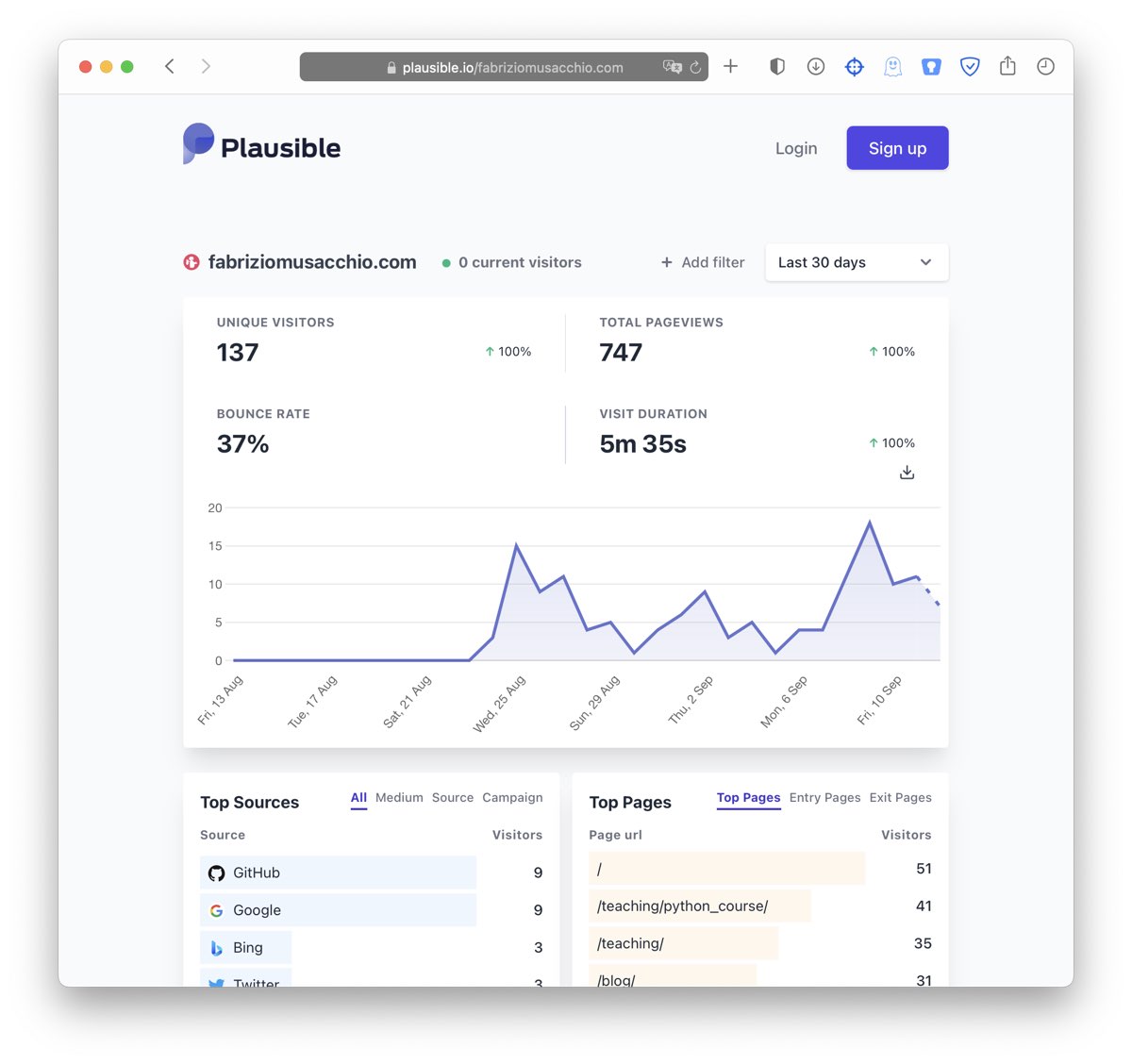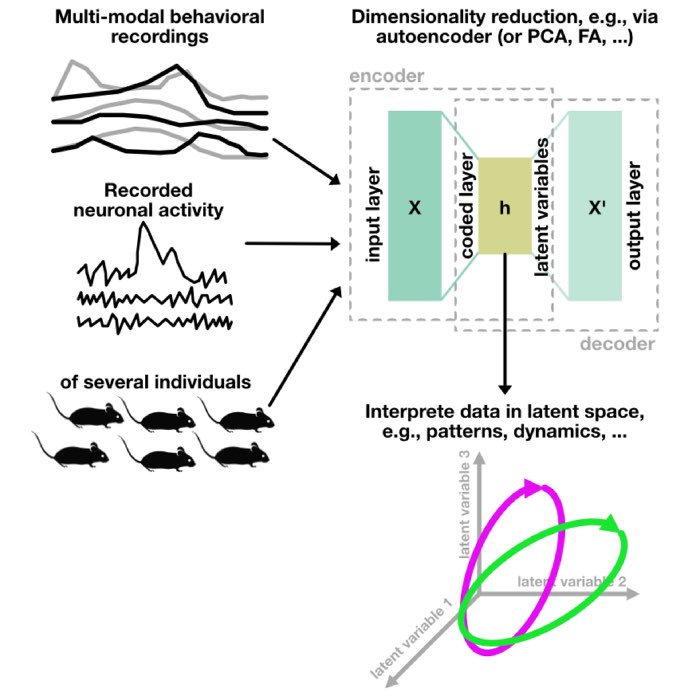My website is now completely cookie-free
Over the past few days, I’ve taken steps to enhance data privacy on my website. By minimizing scripts and switching from Google Analytics to the open-source platform, Plausibleꜛ, I’ve successfully created a completely cookie-free site. These changes not only strengthen the privacy of both you and me but also facilitate a smoother user experience with faster page loading times.
 Output of Firefox’ tracking protection for my website on September 12, 2021.
Output of Firefox’ tracking protection for my website on September 12, 2021.
To provide full transparency, I describe in this post the changes I made and which data is maybe still collected on my website or by third-party providers.
A commitment to privacy protection
Privacy protection has always been a key concern for me – I value not only my own, but also yours. Also on my website, I always try to ensure the highest possible level of data protection.
Essential scripts and privacy
For the optimal operation of my site, I’ve limited the use of scripts to those that are essential, such as for displaying LaTeX markups. Before implementing any external script, I rigorously review them to understand the data they collect and whether they are used for monetization purposes. If so, I avoid using them. One of my strict criteria is to ensure that neither third-party providers nor I can derive a visitor’s identity from the collected data, particularly if cross-website tracking is practiced. As a result, you won’t find web ad scripts or advertising banners here. Likewise, the comment section beneath each blog post does not depend on any third-party cookie-based solutions.
Privacy-friendly website analytics
Previously, I used analytics tools from Squarespace and Google Analytics to monitor broken links and my website’s reach. However, both tools stored the collected data on third-party servers outside of German and European General Data Protection Regulation (GDPR)ꜛ jurisdiction1. In the case of Google Analytics, the data was used in ways beyond my control2, which I found unsettling.
Luckily, recent years have brought about privacy-focused alternatives like Plausible Analyticsꜛ. Plausible Analytics offers a high level of data protection, data storage on European servers, and full transparency with their open-source code.
Why choose Plausible?
Plausible Analytics champions simplicity, openness, independence, and privacy, all while operating entirely within Europe. Having recently implemented it on my site, I can attest to these benefits.
Simplicity
Compared to Google Analytics, Plausible is considerably more user-friendly. Google Analytics required extensive tutorial reading and an understanding of complex dashboard data, whereas Plausible was straightforward to use from day one, thanks to its sleek, clean dashboard and human-readable documentationꜛ.
 My plausible dashboard (on September 12, 2021).
My plausible dashboard (on September 12, 2021).
Open Source
Plausible’s source code is freely available and accessible on GitHubꜛ, encouraging transparencyꜛ and user participation in suggesting new features through its public roadmap.
Lightweight
Plausible’s lightweight script facilitates quicker page loading timesꜛ compared to Google Analytics.
Independence
Plausible operates as a self-funded, independent entityꜛ.
Privacy-friendly
The standout advantage of Plausible is its privacy-friendly approachꜛ. It operates entirely without cookiesꜛ, refraining from collecting any personal data or personally identifiable information (PII). Plausible gathers only the most essential data pointsꜛ, ensuring all data is aggregated and users are not tracked across websites and devices. As it’s based in the EUꜛ, all data collected falls under the stringent European GDPR. Furthermore, all data is securely stored and encrypted on servers in Germany, which run on renewable energy – a commendable bonus.
Good services deserve support
It’s important to note that maintaining these benefits requires funding. People working on ambitious projects like Plausible deserve to be compensated for their efforts. Unlike business models like Google’s, where services are free at first glance but users pay with their data, Plausible’s model relies on a monthly or yearly subscription feeꜛ. The fee varies depending on your site’s reach, i.e., visitor numbers and page views. The entry-level subscription is reasonably priced, making it suitable for most personal websites.
In conclusion
I have no affiliations with Plausible or any other web analytics provider. My only motivation in advocating for Plausible is its emphasis on privacy, which aligns with my commitment to protecting your data and providing transparency. If another provider offered similar privacy features, I would be equally supportive.
I take great pride in the fact that my website is now completely cookie-free. I’ve eliminated the need for cookie banners while maintaining a detailed privacy policy for any data processing that might occur during your visit. I will continue to minimize data collection wherever and whenever possible.
Should you have any questions or concerns about your data protection on my website, please feel free to get in touch or leave a comment below.
-
For a deeper insight and broader overview of website analytics tools with regard to privacy protection, there is an interesting recent article on Data analytics in a privacy-concerned worldꜛ by Jaap Wieringa, P.K. Kannan, Xiao Ma, Thomas Reutterer, Hans Risselada, Bernd Skiera, Journal of Business Research, Volume 122, 2021, Pages 915-925, ISSN 0148-2963, DOI: 10.1016/j.jbusres.2019.05.005ꜛ. ↩
-
Read more about how Google officially further processes data on their servers, e.g., on their Data Processing and Security Terms websiteꜛ. ↩








Comments
Comment on this post by publicly replying to this Mastodon post using a Mastodon or other ActivityPub/Fediverse account.
Comments on this website are based on a Mastodon-powered comment system. Learn more about it here.
There are no known comments, yet. Be the first to write a reply.